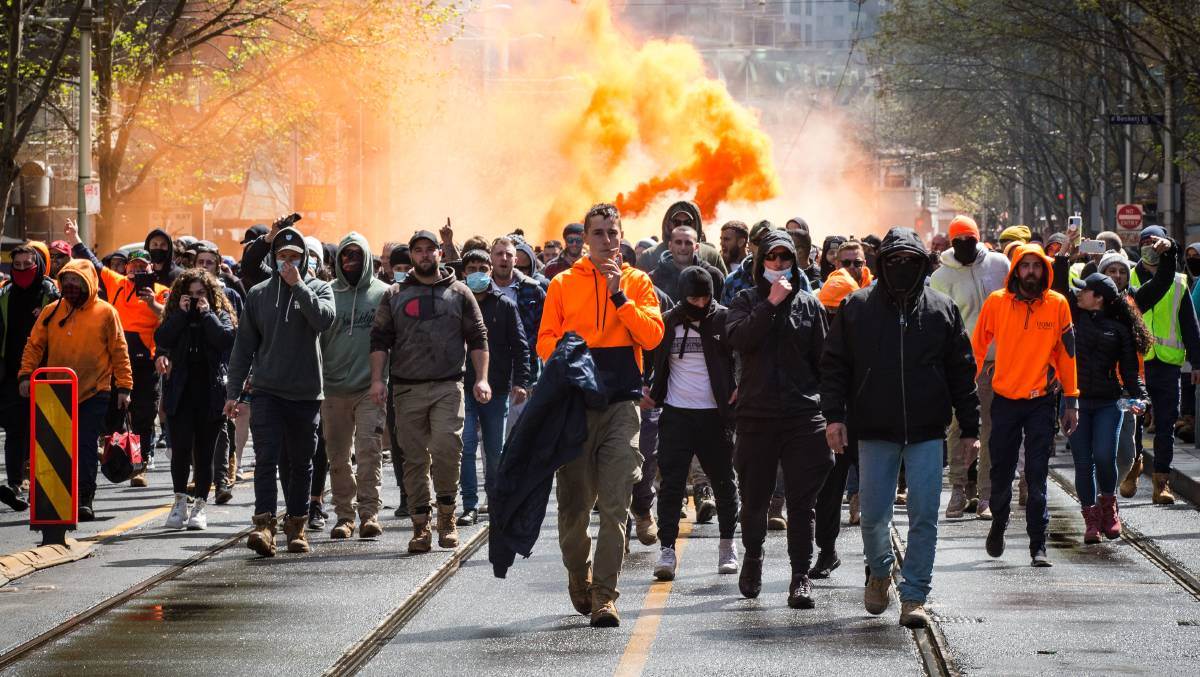Since the beginning of the pandemic the union movement here in Australia, and across the globe, has been at the forefront of the struggle to keep us safe.
ACTU Secretary, Sally McManus, was one of the first, in early 2020, to call for the provision of personal protective equipment, special isolation leave, and other safety measures for working people and the communities they serve. She, and union leaders around the country, were amongst the first to sound the alarm on the gravity of the threat to our lives and livelihoods posed by Covid-19 and amongst the first to heed the expert health advice on the dangers of doing nothing and adhering to a “business-as-usual” framework.
It was the ACTU that dragged prime minister Morrison kicking and screaming to the point where he reluctantly committed to a wage subsidy and a Coronavirus Supplement. It was the ACTU that, even before the pandemic hit, was a singularly prophetic voice on the danger to society of insecure work.
The union movement has been a constant thorn in the side of a federal government reluctant to secure a supply of vaccines for Australia. We are now all paying the price for the Morrison government’s vaccine rollout hesitancy.
There’s a solid reason why the union movement has played the leadership role that it has during this national crisis.
Unions are simply working people organised collectively, not only to fight for better pay and working conditions, but for a better society, one in which we are empowered to look out for each other.
Unions are diverse. They are, after all, made of people. The membership of unions reflects the diversity of the community.
Fifty-five percent of trade union members in Australia are women.
ABS data shows that the three industries with the highest union density are education and training, public administration and safety, and health care and social assistance, followed closely by electricity, gas, water and waste services and then transport, postal and warehousing.
I am a member of the Australian Service Union but I have had the enormous joy of speaking with members of many different unions across the country. What is clear to me is that while there is incredible diversity in the movement, there is also incredible unity of purpose.
We want to live. We want our children to live. We want everyone to get a fair crack at happiness.
Which is why unions in Australia are unambiguous in their support of vaccination. On 7th September this year the ACTU launched a national vaccination campaign, “encouraging all eligible Australians to get vaccinated to support the working people of our country: essential workers who expose themselves every day to keep the country running, hospital workers who face being overwhelmed with unvaccinated people and workers who have lost their jobs because of lockdowns.”
In the light of the anti-lockdown, anti-vax, far-right violence this week in Melbourne, it was with remarkable prescience that on 25 August Sally McManus tweeted:
“Unions… are now facing what looks like an organised push by far right groups and… libertarian politicians to convince people not to get vaccinated. This is infuriating. It is working people around the world that are dying because they are unvaccinated and health care workers who are suffering the trauma of overwhelmed hospitals. It is working people who will also suffer the most economically with jobs and income being lost if these people make any inroads with their misinformation. Vaccination is our only path out…. We are about supporting and protecting each other and we will not tolerate such people dividing, confusing and playing with people’s lives and their jobs.”
What happened in Melbourne this week was an orchestrated attack on the union movement. But, in seeking to attack and undermine unions, these actions were also an attempt to attack and undermine the broader community. For, if the pandemic has taught us anything, it is that when working people are under attack, society as a whole is under attack.
The pandemic shone a light on the fact that job insecurity is a danger not only to the people in insecure jobs themselves but to society as a whole. Which is why the union movement has recently launched the “Secure jobs. Worth fighting for” campaign.
The right wing extremists responsible for the violence in Victoria, as well as in other states, are preying on people. Job insecurity, inequality, and a sense of disempowerment can provide a fertile ground for this predatory politics of division.
But now is not the time to watch and weep. It is time for the community, especially since we are so bereft of national political leadership, to stand and collectively fight this dangerous messaging and to fight the causes of structural inequality by, for example, working to reverse the normalisation of insecure jobs, currently experienced by one in four workers, and by ensuring the physical, psychosocial and economic safety of workers and our communities, as well as securing everyone’s right to housing, health, education and a decent level of income support for people who are not in paid work.
We have no right to indulge in the luxury of despair. We have to get on with the hard work of hope. We’ve got to have each other’s backs.
Because none of us are safe unless all of us are safe.
If you want an enduring image of the practice of hope and the strength of solidarity, you won’t find it in the violence instigated by those who hold selfish, individualistic ideologies.
But you will find it in, amongst many others, the retail worker who serves you at your local supermarket, the cleaner who makes things safe for you at the Canberra Centre, the postie who delivers your mail, or the nurse who gives you your jab.
Dr John Falzon in The Canberra Times

